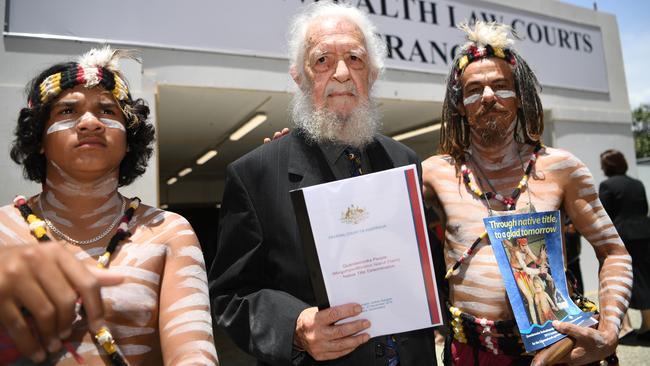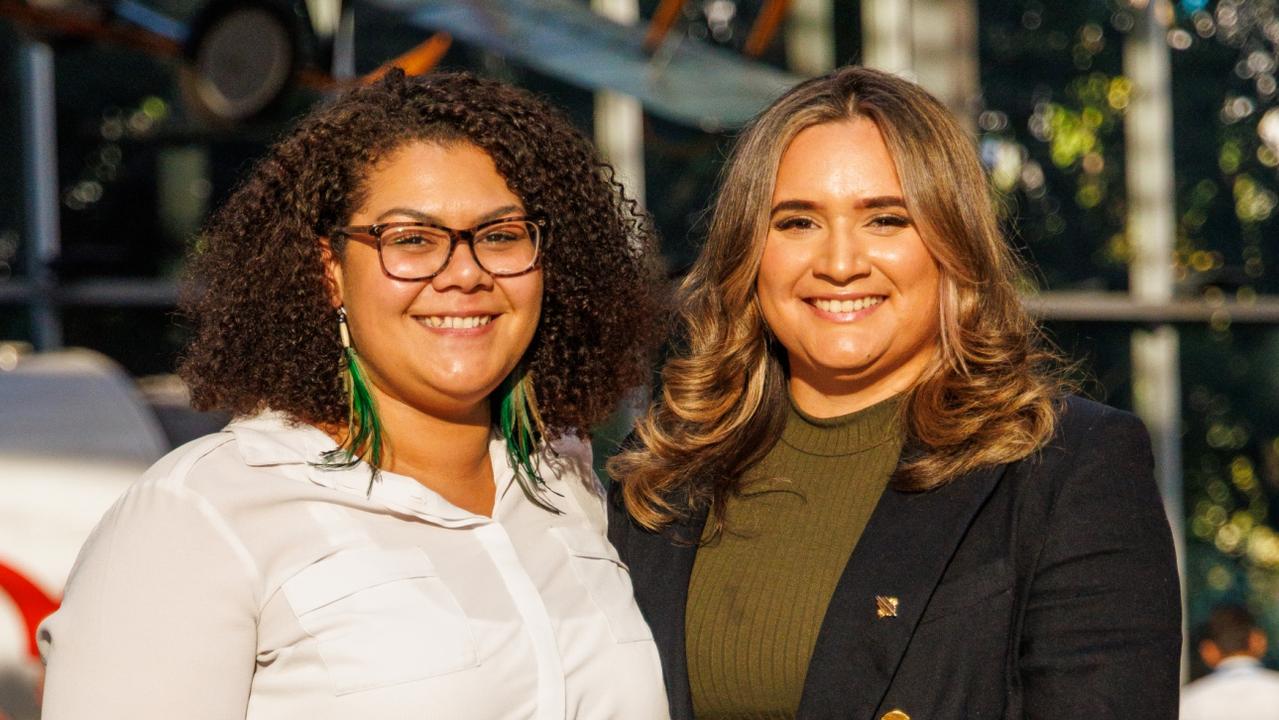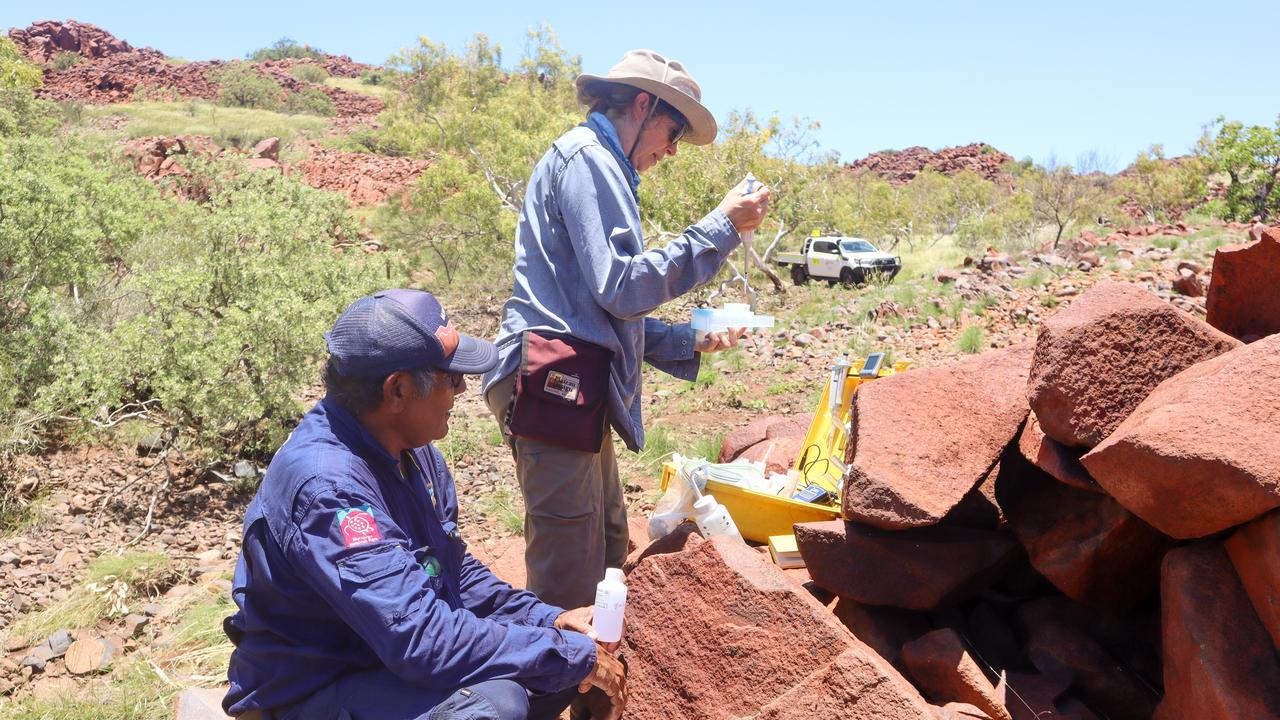Court challenge to Adani native title claim
The Aboriginal group that struck a land use deal with Adani over its mine site is having its native title claim to the area challenged.

The Aboriginal group that struck a critical land use agreement with Adani over its mine site in central Queensland is facing a court challenge from the Palaszczuk government to its native title claim over the coal-rich region.
More than 14 years after the Wangan and Jagalingou people filed an application, the Queensland government will next week contest the native title claim in the Federal Court, despite the support of both state and independent anthropologists for the group.
The challenge could undermine the existing indigenous land use agreement with Adani, and the prospect of similar employment and compensation deals for local Aborigines, with the remaining six companies also planning to open coalmines in the Galilee Basin.
State government lawyers began challenging the group’s claim about 18 months ago, when the Palaszczuk government cabinet was divided over Adani’s project, then the biggest planned coalmine in Australia.
A rare 10-day “contested” hearing will begin next Monday in Claremont, central Queensland — only the 13th native title trial to be held in the state, with the remaining 139 determinations made with the consent of the state government.
The trial is in contrast to the “consent determination” reached between the state government and Quandamooka people over Moreton Island, which was recognised by the Federal Court on Wednesday.
Wangan and Jagalingou representative claimant Patrick Malone said he was bewildered by the action of the state government to refuse consent.
Documents obtained by The Australian show that four separate anthropologists backed the Wangan and Jagalingou claim to native title, but they had questioned the documentation of four of the 12 representative family groups. After consultation, the four families were removed from the claim.
Mr Malone said the state government had refused to give consent to the remaining family representatives, who have the support of the anthropologists to their native title claim. He said he was “suspicious of the motivation’’ of the state government, given its internal division over Adani’s proposed mine and the Left faction-led opposition, which has delayed the project.
“The state’s policy position is that they should progress to a consent determination if the connection reports and the experts agree,” Mr Malone said.
“They are ignoring the experts’ advice, which was developed via a case management process of the Federal Court.”
Mr Malone said gaining native title was imperative to gain a “seat at the table” and the application alone had already secured a land use agreement with Adani that guaranteed 7.5 per cent indigenous employment.
“We are also seeking support for the 7.5 per cent indigenous employment target across the six coal projects in the Galilee Basin, which would provide 1042 indigenous jobs during construction and 960 in the ongoing operations,” Mr Malone said.
Minister for Natural Resources Anthony Lynham issued a statement but did not answer specific questions about the move to contest the native title claim. “Under commonwealth law, applicants must demonstrate that they have maintained a continuing connection to the claim area,” he said.
“The state has been working for a number of years with the applicants on the issue of providing evidence to support their connection.
“The hearings before the Federal Court next week will give the applicants that opportunity.”
A spokesman for Adani said the company would keep the land use agreement even if there were no legal obligation if the Wangan and Jagalingou people lost the court action.
“Adani Mining will honour the terms of the ILUA with the Wangan and Jagalingou people, regardless of future native title claim proceedings,” the statement said.
Yvonne Johnson, 25, said she and other young Wangan and Jagalingou people would have employment opportunities if they gained native title.
“Having native title gives us a seat at the table to be able to negotiate agreements with companies and get a better outcome for our people,” Ms Johnson said.




To join the conversation, please log in. Don't have an account? Register
Join the conversation, you are commenting as Logout